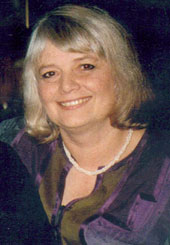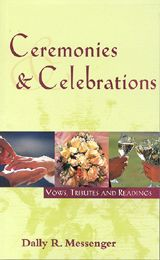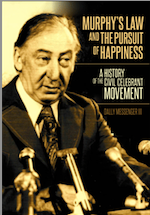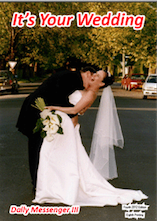Traumatic Funerals: Death of a baby
by Kathleen Mary Hurley
Pioneer Funeral Celebrant
(ca.1993 - During the time Beverley Silvius began the first Funeral Celebrants Course )
I would like to begin this talk this evening by relating to you the reason I decided to become a civil funeral celebrant.
In the mid 1970's my husband and I adopted a baby boy who was five weeks old when he came to live with us. Just six weeks later he died as a result of"Sudden Infant Death Syndrome" or 'cot death' as it was more commonly known then.
The trauma of that experience was probably the worst I had or have since experienced. I remember at the time having a very strong urge to want to do everything myself for my baby. I wanted to be there with the doctor when he came; I wanted to help the funeral director when he came, I wanted to make sure he had clothes to wear. I wanted to spend as much a time as I could with my baby, before it was too late, as I would never see him again.
Well, back in the mid 1970s there was little understanding of grief patterns and the needs of parents of a baby who had died, and the SIDS organisation, with their counsellors and support systems, didn't exist then. I was actively discouraged from doing any of those things, or even seeing any of those things happen. I remember just getting a glimpse of the funeral director walking across to his car with a wicker baby carry basket, and then that was only because I sidestepped around my father-in-law who was actively shielding my view. I must say, in my emotional state at the time, that took immense courage to do that.
The ensuing hours or days saw the police come and ask questions, and the funeral director came to arrange the funeral. Of course, being in the days before civil funeral celebrants existed, and seeing we were Catholic, a Mass of the Angels was arranged for our son. I don't remember asking for that, or meeting the priest before the service, and we certainly didn't have any say in what was said.
But we were able to see our baby at the funeral Parlour the day before the service. I remember the funeral director being gentle with us and giving us space and time - we were grateful for that. Incidentally, I occasionally see him as he still works as a funeral director, and I have spoken to him of that time.
Although I acknowledge that those around us were well meaning and protective of us, it was not what we needed. What we were screaming out for was to be able to take part, at a personal level, in practically every aspect of the final days our baby was on this earth. But we were protected from that, and once all those people went back to their own daily routines, we were left to deal with our grief and our anger ourselves.
Three years later my mother died very suddenly of a heart attack. That funeral was just terrible. The clergyman came to see us, briefly. He didn't know my mother, or us but again in those days we didn't have much choice of a ceremony. He got my mother's name wrong at least once, and he said she had three grandchildren instead of one.
Having experienced two unsatisfactory funerals in short succession. I began to believe that there had to be a better way in which this whole procedure could be handled. Perhaps it would be better if' when people died, there was no ritual or procedure, that when a person died the body would just be taken away and that was that. I soon realised that that line of thought was not going to help those who are left, that there still had to be a better way.
Then I read in the newspaper about Dally (Messenger) and how he and a little group of celebrants were providing personalised ceremonies as an alternative to religious funerals. So I contacted Dally and I suppose the rest is history.
That was back in 1982 and I had a vision, then, that funeral ceremonies must bemeaningful for those people who attend. They must be right because it is the absolute last thing that a group of family and friends can do for their loved one. And the celebrant has a major role to play in that.
I also believe now and have come to understand with experience, that those few days between the death of a person and the funeral are absolutely crucial in beginning a good and healthy grieving process. That all the professionals who have anything to do with the family at that time — whether it be police, ambulance officers, florists, funeral directors, clergypeople or celebrants, doctors and nursing staff, gravediggers and cemetery staff must ensure that every attention to every detail is absolutely right for the family. Because if something is not satisfactory in those few days, I believe it can hold that family in that place in time in their grief. They are sensitive and they remember little things like, "I asked for red flowers and pink ones came" or "the wrong music was played". If everything is right, while they might be grieving, at least they can move on in the grief.
Traumatic deaths are probably the most difficult situations a celebrant faces. When you go to see a group of family and/or friends and you knock at the door, you never know what you are going to have to deal with. And I must say that even after nearly 14 years, I sometimes still feel apprehensive as I pull up outside a home.
The range of emotions can be immense — from anger and even verbal abuse on one occasion, to not wanting to know or even acknowledge you! presence, to hysterical laughter or wanting to tell jokes all the time or just being 'spaced out' either from the shock or because the doctor has filled a person up on tranquillisers.
Whilst each situation must be dealt with on it's own merits, I find that people respond to gentleness, understanding, and calmness. One must give them time and space if they need it, to prepare themselves to speak to you' and above all treating them as intelligent human beings who have feelings and needs and desires, and taking the time to find out what is important for them.
I remember once I went to see a family of a 6-year-old Down's Syndrome girl who had died quite suddenly of a heart attack. Although she wasn't well and the family knew that she probably wouldn't live beyond ten or eleven, the death was an immense shock. They were angry that they hadn't had the chance to say goodbye.
They chose a civil funeral for their little girl and wanted the ceremony to reflect her life. They had even chosen some of their daughter's favourite songs and knew that when I arrived I would need to talk about her life. But when it came to sitting down and doing that, they were totally unco-operative. They just couldn't face that at that time, and did everything else but. So what I did was sit down quietly with them. We talked about other things' and eventually they softened a little, and actually got out some photo albums, partly to show me, but mostly to talk to each other. There were uncles and aunts and cousins there too, and a good excuse to do everything but talk to me. As they chatted I sat quietly and wrote notes, and threw in the occasional remark or question, to gently keep their conversation 'on track' as it were. Soon they were relaxing and laughing and talking, as they pawed over the photographs, recalling some of the special moments they had had with the little girl.
Eventually I said my goodbyes, offering to contact them to read the ceremony to them to check accuracy. It was no surprise when they said they didn't want that. This left me more than a bit apprehensive considering the way in which I'd gleaned the information. After the funeral, the mother came up to me and said 'that it was a wonderful ceremony and just what they wanted for their daughter'' but asking also 'where did you get all that information?'
I remember too another funeral I did for a young man, perhaps 27 or 28 years old who had been murdered. He was not married, but he was uncle to two little boys aged about 9 and 7, and because they didn't have a father, he was also a father figure for those two boys.
With that interview I needed to let the family talk about their anger about the circumstances of the death, about what the loss this man meant to them. They were very candid which I appreciated, and they asked questions, too, about the two boys. They asked whether they should come to the funeral, whether they should see their uncle. The two boys were there at the interview, so I was able to talk with them with the mother's permission. They told me all about their uncle and told me that they wanted to come to the funeral. They also wanted to see their uncle and asked me what he would look like in his coffin. With such deaths, I often ask the funeral director about such details, so I am armed with knowledge should this situation arise.
Again the best policy is honesty in a gentle way. Before the funeral the two boys came with me to see their uncle. They asked questions about his skin colouring, about the bruise on his chin. They touched their uncle, they leaned on the coffin, and once they knew answers to their questions they were comfortable about what was happening.
When writing a funeral which deals with sudden and traumatic death such as suicide, murder, road accidents, cot death, drownings and so on, apart from reflecting the life of the deceased, it is also very important to acknowledge the feelings of the mourners. It is important to mention, the anger and the pain and the hurt, the feelings of frustration and helplessness, because there is a certain sense of comfort in knowing that there is someone out there who understands.
Not all funerals are as heavy as some of these I have mentioned, but in working with grieving people on a constant basis, I believe too that celebrants must also look after themselves; that there is a burnout factor in this profession. I have spoken long enough, but just want to touch briefly on this. It is important to know and recognise the signs of burnout and to learn what to do about it. By managing your own abilities, you will be much more able to help others in a positive and constructive way. I also believe that by celebrants having some sort of mentor system where we can be supportive of each other in difficult situations could be very helpful. I for one, would be available if needed. ~ have brought with me some pamphlets, which address burnout for caregivers, and some business cards. Please pick some up if you would like.
Finally, I Just want to say thank-you to you, Bev (Silvius). This course you are running is long overdue and the preparation you have put in has produced a wonderfully comprehensive course that can only benefit everyone. All 1 can say is well done, Bev.
Editor's Note: this course is now theDiploma of Funeral Celebrancy.
Hourly rate Funeral Celebrantscan be found here.
Ceremonies - all |
History |
Marriage Ceremonies |
---=

